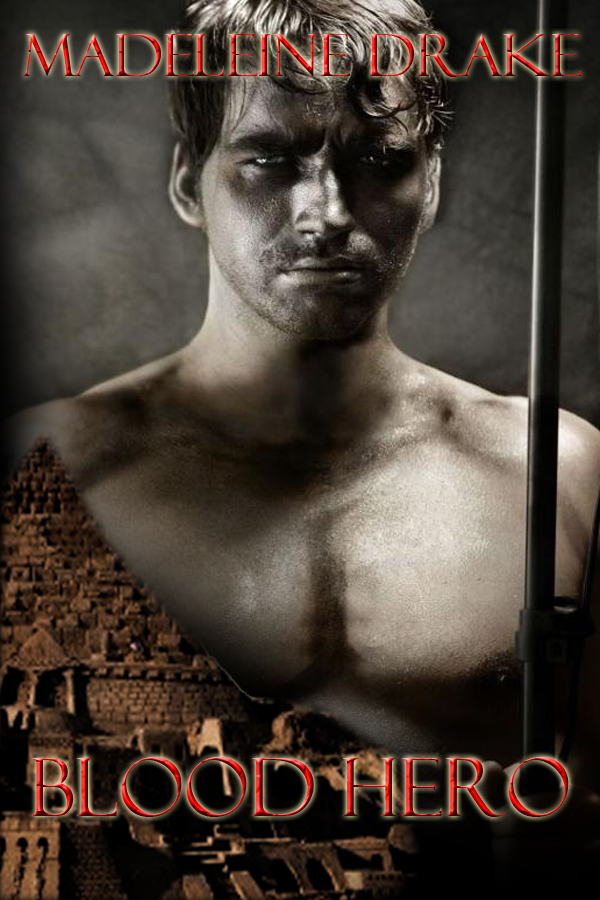

 The Blood Hero Mythos Find Maddy on: Myspace Wordpress |
In modern times, the name of this ancient city has become a synonym for decadence and power. Maybe you've heard of the famous Hanging Gardens of Babylon, said to have been built by King Nebuchadnezzar II for his wife Amytis. It was one of the seven wonders of the ancient world. Apparently Amytis was homesick for her homeland, Media (ancient Persia), and Nebby wanted her to be happy with her new home on the plains of Mesopotamia. Isn't that romantic? Or maybe you're familiar with Babylon as referenced in the Bible -- home of the Tower of Babel, the Babylonian conquest of the kingdom of Judah. But who were the Babylonians? They were the inhabitants of Mesopotamia (the "fertile crescent" between the Euphrates and Tigris rivers), and their empire dominated this area from 1994-1595 B.C.E. The Babylonian empire was the third major civilization to arise in Mesopotamia: the first was that of the Sumerians, and the second, the empire founded by Sargon the Great of Akkad. Babylonian culture was a mixture of Sumerian and Akkadian traditions, and they preserved and added to the knowledge of their predecessors. The Epic of Gilgamesh, for example--Gilgamesh was a Sumerian king who, if he existed, would have lived more than a millennia before the rise of Babylon. But the Sumerian stories of Gilgamesh were fragmented; it was the Babylonians who took the various legends and wove them into a single life story, preserved in the epic poem we're familiar with today. The Babylonians passed on much of their mathematical, astronomical and engineering knowledge to the Egyptians and the Greeks, and Babylonian mythology influenced both of these ancient civilizations. Probably a demonized form of the Sumerian goddess Lilith, the ardat-lili was the "night maiden" who visited men in their beds, seducing them while draining their vitality and, in some cases, becoming pregnant by them. The ardat-lili made her way into Christian mythology via the Romans, whose name for the night-maiden was "succubus." Although Babylonian myths feature a number of spirits or creatures who enjoy drinking the blood (and eating the flesh) of human beings, none of them really resemble vampires in the modern sense. So I decided to invent a kind of vampire who both fit the modern conception but also could be integrated with the Babylonian myths. Hence the blood-hero, a warrior who gained some of the powers of the gods by ingesting a small portion of divine blood, but who also gains some of that deity's limitations as well. Because Rihat drinks the blood of the ardat-lili, who is a creature of the night, he also draws his powers from darkness. The texts that mention the Akhazu don't describe what it looks like -- all we know about this feared demon is that its name literally means "the seizer." (I've simplified the spelling, as the original word was "akh-khazu", with the "kh" sound being an aspirated "k" like the "ch" in the Scottish word "loch." In order to pronounce it correctly, you have to be willing to sound like you're choking a little.) The Babylonian god of war, and head of the Babylonian pantheon, much as Zeus was considered the king of the Greek gods. He won his position among the other gods by slaying the dragon-goddess Tiamat and piecing together the world from her dead body. The Babylonian god of wisdom and magic, Ea was a shamanic trickster figure; he both created humanity, and afterward, continued to watch out for us when the other gods didn't have our best interests at heart. He is the Babylonian version of the Sumerian god, Enki. Links to more information about Babylonia Wikipedia's article on Babylonia: http://en.wikipedia.org/wiki/Babylonia A History of Ancient Babylon: http://history-world.org/babylonia.htm The Assyro-Babylonian Mythology FAQ: http://home.comcast.net/~chris.s/assyrbabyl-faq.html |